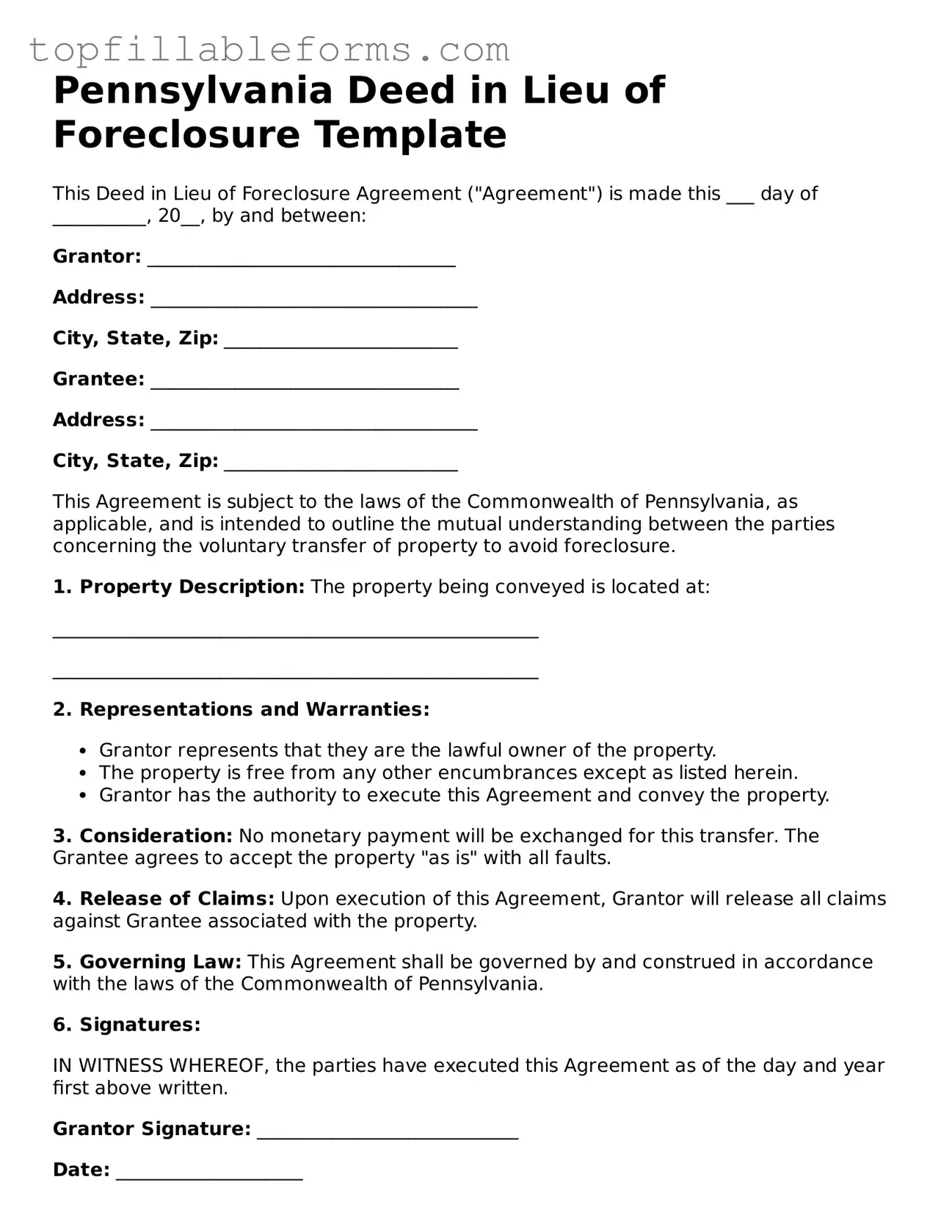Attorney-Verified Deed in Lieu of Foreclosure Template for Pennsylvania
The Pennsylvania Deed in Lieu of Foreclosure form is a legal document that allows a homeowner to transfer their property title to the lender in order to avoid the foreclosure process. This option can provide a more amicable resolution for both parties, as it often results in less financial and emotional strain. Understanding the implications and benefits of this form is crucial for homeowners facing financial difficulties.
Open Deed in Lieu of Foreclosure Editor Here

Attorney-Verified Deed in Lieu of Foreclosure Template for Pennsylvania
Open Deed in Lieu of Foreclosure Editor Here
Finish the form now and be done
Finish your Deed in Lieu of Foreclosure online by editing, saving, and downloading fast.
Open Deed in Lieu of Foreclosure Editor Here
or
▼ PDF File
